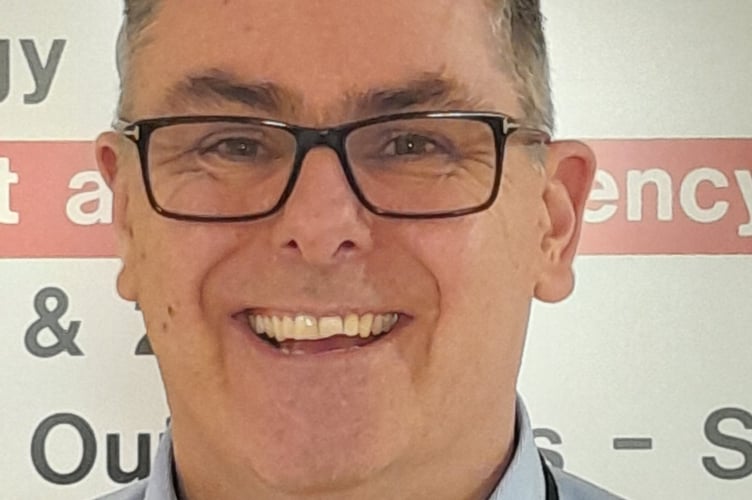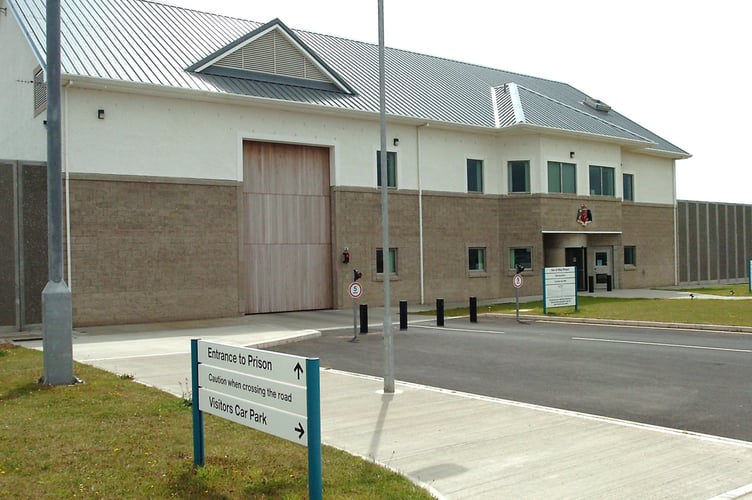An island health chief says a huge amount of work has gone into improving care at the prison but says the population increase has added further challenges.
Deputy chief executive and director of nursing and Manx Care Paul Moore has responding to a highly critical report by the UK’s Prison Ombudsman following the death of inmate Christopher Corkill.
Mr Corkill was found dead in his cell at the Jurby prison on February 24, 2023.
The 46-year-old had suffocated himself. The situation was exacerbated by the fact this was the third self-inflicted death at the prison since March 2020.
Mr Corkill had a history of self-harm and was supported by suicide and self-harm prevention measures, known as Folder 5, when he first arrived at Isle of Man Prison in July 2022.
However, the Prison Ombudsman Adrian Usher found the overall care provided to Mr Corkill by Manx Care was not equivalent to that which he could have expected to receive in the community.
The report, published this month, found the response to a medical emergency inadequate and mental health services within the prison were ‘inadequate, unsafe, and not equivalent to what is available in the wider community’.
The Prison Ombudsman investigation followed a separate inspection from His Majesty’s Inspectorate of Prisons (HMIP) which took place between February and March last year which found many ‘missed opportunities and poor systems of accountability’.
A follow-up review was conducted, between April 30 and May 2 this year, where the inspectors found ‘encouraging’ improvements.
Mr Moore says a huge amount of work has been carried out to address the issues and says that work will continue.
He said: ‘I deeply regret Mr Corkill and Mr [Craig] Anderson lost their lives. But they have been sentinel events which have put a spotlight on the need for improvements and learning.
‘The important thing to get across is that we have developed a healthcare improvement plan for the prison which has originated from the three recent deaths.’
But Mr Moore says there are now further challenges due to the prison population now being almost at maximum capacity.
He said: ‘The prison population is increasing and we are currently having to do more work with the same resources which puts a strain on the service.
‘We hope to address that and discussions are ongoing between Manx Care, the Department of Health and Social Care and Treasury.’

Despite the challenges, Mr Moore says improvements have been made and outlined what work has been done.
He said: ‘Firstly, we are working with the Department of Health on service specifications. There should be no difference between the service provided to prisoners and those in the community.’
The Prison Ombudsman report said staff morale of ‘low’ and staff ‘felt frustrated by the lack of response from senior managers when issues were raised’.
Mr Moore added: ‘We have been looking at workforce development to build and stabilise staffing levels. We need to make sure we educate, train and promote the skills of the staff.
‘Morale is quite difficult to define but we are trying to change the culture and a more positive working environment. What healthcare workers experience in a custody setting is different to elsewhere. It takes specialist knowledge and skills.’
Mr Moore also says a lot of work has gone into change the procedures within the healthcare provision at the prison.
He explained: ‘Quality control and assurance gets to the heart of the things we need to get right. This involves protocols around the healthcare assessment of prisoners when they first arrive and the care plan they receive.
‘We are also doing a lot of work on the health needs assessment of the prison population as a whole. We know these needs to be better.
‘We need clear and robust referrals to ensure there are clear pathways for those in need of medical and mental health care. We are simplifying these to ensure we reduce the number of errors and prevent anyone falling through the cracks.’
Mr Moore says work has also been carried out on medicine safety which includes ensuring ‘tradeable’ medicines (such as painkillers and sleeping tablets) are not sold on or given away by prisoners to other inmates who do not need the medication.
Most of these improvements have been implemented as part of phase one but Mr Moore says there is plenty more work to be done in phase two.
He said: ‘We are very pleased with the outcome so far but there is a lot more to do. The second phase is about embedding these improvements and will be determined by the prison population healthcare assessment.’




-(1).jpeg?width=209&height=140&crop=209:145,smart&quality=75)